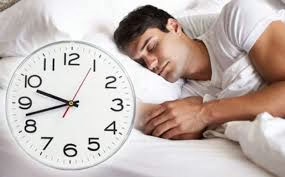Sleep Hygiene 101: Habits That Promote Restful Nights
Sleep plays a crucial role in our physical and mental well-being. The quality of our sleep can impact everything from our mood and cognitive functioning to our overall health. Unfortunately, sleep disorders and poor sleep habits are prevalent in today’s fast-paced world. This article explores the concept of sleep hygiene, its importance, and habits that promote restful nights.
What is Sleep Hygiene?
Sleep hygiene refers to a set of practices that are conducive to sleeping well on a regular basis. These practices encompass environmental factors, daily routines, and lifestyle choices that contribute to effective sleep. Focusing on sleep hygiene can help individuals improve sleep quality, reduce the risk of sleep disorders, and enhance overall health.
Importance of Sleep Hygiene
Good sleep hygiene is essential for various reasons:
- Physical Health: Quality sleep is necessary for optimal immune function, hormone regulation, and cardiovascular health.
- Mental Health: Poor sleep can exacerbate mental health issues, including anxiety and depression.
- Cognitive Functioning: Adequate sleep is linked to improved memory, focus, and decision-making skills.
- Quality of Life: Individuals who prioritize sleep often report higher levels of happiness and life satisfaction.
Maintaining good sleep hygiene can aid in preventing the onset of chronic sleep issues and improve overall life quality.
Core Components of Sleep Hygiene
1. Consistent Sleep Schedule
Establishing a consistent sleep schedule is one of the foundational habits of sleep hygiene. Going to bed and waking up at the same time every day, even on weekends, helps regulate your body’s internal clock. Consistency not only makes it easier to fall asleep and wake up but also improves the overall quality of sleep.
2. Create a Restful Environment
Your sleep environment significantly impacts your sleep quality. Here are some tips for creating a conducive atmosphere:
- Temperature: Keep your bedroom cool, ideally between 60-67°F (15-20°C).
- Darkness: Use blackout curtains and consider wearing an eye mask to block out light.
- Noise: Reduce noise using earplugs or a white noise machine.
- Comfortable Bedding: Invest in a quality mattress and pillows that provide adequate support.
3. Limit Screen Time
The blue light emitted by screens can interfere with your body’s production of melatonin, a hormone that regulates sleep. It’s wise to avoid screens (phones, tablets, computers, and TVs) at least an hour before bedtime. Consider reading a book or engaging in other relaxing activities instead.
4. Mind Your Diet
What you eat and drink can greatly affect your sleep quality. Here are some dietary tips:
- Avoid Caffeine and Nicotine: Both are stimulants that can hinder your ability to fall asleep.
- Limit Heavy Meals: Eating large meals close to bedtime can lead to discomfort and indigestion, making it harder to sleep.
- Stay Hydrated: While drinking water is essential, try to minimize fluid intake close to bedtime to reduce nighttime awakenings for bathroom trips.
5. Exercise Regularly
Engaging in regular physical activity can promote better sleep. However, timing matters. Try to finish vigorous workouts at least a few hours before bedtime to avoid overstimulation. Gentle exercises like yoga or stretching before bed can also help prepare your body for sleep.
6. Manage Stress and Anxiety
Chronic stress and anxiety can significantly interfere with sleep. Techniques such as mindfulness, meditation, deep breathing exercises, and journaling can be effective in managing stress. Establishing a calming bedtime routine can signal to your body that it’s time to wind down.
7. Limit Naps
While short naps can be beneficial, long or irregular napping during the day can negatively affect nighttime sleep. If you choose to nap, limit it to 20-30 minutes and ensure it’s early in the day.
8. Seek Natural Light
Exposure to natural light during the day helps regulate your sleep-wake cycle. Aim to spend some time outside each day, especially in the morning. This exposure can enhance your mood and help you feel more alert during daylight hours.
9. Consider Sleep Supplements Wisely
Some individuals consider sleep aids or supplements like melatonin. While these can be helpful for certain sleep disorders, it’s essential to consult a healthcare professional before starting any supplement. Relying on medication for sleep should be a last resort.
10. Understand Your Sleep Needs
Individual sleep needs can vary widely. While most adults require 7-9 hours of sleep per night, some may need more or less. Pay attention to your body’s signals and adjust your sleep schedule to ensure you’re well-rested.
Common Sleep Disorders and Their Impact
Understanding sleep disorders can help individuals take necessary steps toward improving their sleep hygiene. Below are some common sleep disorders:
Insomnia
Insomnia is characterized by difficulty falling asleep, staying asleep, or waking up too early. It can lead to chronic sleep deprivation and affect overall health. Behavioral therapies and improved sleep hygiene practices are often effective treatment options.
Sleep Apnea
Obstructive sleep apnea involves repeated interruptions in breathing during sleep, leading to fragmented sleep. This condition can result in excessive daytime sleepiness and increase the risk of other health issues, such as heart disease. Treatment often involves lifestyle changes, CPAP therapy, or surgery.
Restless Legs Syndrome (RLS)
RLS is a condition that causes uncomfortable sensations in the legs, often accompanied by an urge to move them. This can disrupt sleep quality and lead to insomnia. Treatment options include lifestyle modifications and certain medications.
Narcolepsy
Narcolepsy is characterized by excessive daytime sleepiness and sudden sleep attacks. While it can be challenging to manage, several strategies—like scheduled naps and stimulant medications—can help.
The Science of Sleep
Understanding the science behind sleep can deepen our appreciation for its importance. We cycle through two main types of sleep: REM (Rapid Eye Movement) and non-REM sleep.
Non-REM Sleep
Non-REM sleep consists of three stages:
- Stage 1: Light sleep, where you can be easily awoken.
- Stage 2: Deeper sleep, where heart rate slows, and body temperature decreases.
- Stage 3: Deep sleep (slow-wave sleep), crucial for physical restoration and growth.
REM Sleep
REM sleep usually occurs after about 90 minutes of sleep and is associated with dreaming. It’s essential for cognitive functions such as memory consolidation and emotional processing.
Sleep Cycles: We typically go through 4-6 sleep cycles each night, with each cycle lasting about 90 minutes. Achieving a full cycle is essential for feeling refreshed and alert the next day.
Final Thoughts
Improving your sleep hygiene doesn’t require drastic changes overnight. Start incorporating one or two habits into your daily routine and gradually add more. Consistency is key.
If you find that despite implementing good sleep hygiene practices, you still struggle with sleep, it may be beneficial to consult a healthcare provider. They can assess for any underlying conditions and help you develop a more tailored approach.
In conclusion, prioritizing sleep hygiene is a worthwhile investment in your overall health. By cultivating habits that promote restful nights, you pave the way for enhanced physical health, improved mental well-being, and a better quality of life.
References
- National Sleep Foundation. “Sleep Hygiene.” Sleep Education.
- Harvey, A. G. “Cognitive Behavioral Approaches to the Treatment of Insomnia.” Journal of Clinical Psychology, vol. 65, no. 5, 2009, pp. 1371-1380.
- American Academy of Sleep Medicine. “The Importance of Good Sleep Hygiene.” AASM.
- Walker, A. “Why We Sleep: Unlocking the Power of Sleep and Dreams.” Scribner, 2017.
- Buysse, D. J. “Sleep Disorders and Biological Rhythms.” The American Journal of Medicine, vol. 113, no. 9, 2002, pp. 207-251.
This article serves as an introduction to sleep hygiene practices that can lead you toward better sleep quality. Embrace these habits, and you may find yourself enjoying the benefits of a well-rested mind and body.


























Add Comment